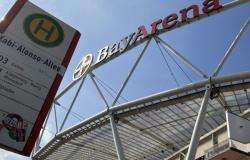Scotland will take to the pitch at Hampden Stadium on Friday evening, opening a Nations League doubleheader that has significant implications for their fate in UEFA’s prestigious competition. This series of games could also represent an important step towards their ambitions in the upcoming World Cup qualifiers.
Steve Clarke’s side will first face Croatia at the National Stadium before heading to Poland for their final group challenge in Warsaw on Monday.
After gaining promotion to the elite League A, Scotland have struggled with life at this level. So far they have only managed to secure one point from four games. That single point was salvaged from a hard-fought 0-0 draw against a star-studded Portuguese side in their last home game, while Scotland suffered narrow defeats in their previous three games.
The Scottish national team is currently at the bottom of Group A1, three points behind Poland, six behind Croatia and nine points behind group leaders Portugal.
Read more:
I have to thank Córdoba CF for giving me this opportunity to play in the professional world.
Fourth place would inevitably mean an immediate return to League B, while third place would drag them into a relegation play-off against a team from the second division. Possible opponents in such a scenario could be England and Austria – a precarious situation given the uncertainty hanging over it.
Over the course of the campaign, Clarke has stressed that the best way for his team to develop, particularly the younger players, is to continually compete against the strongest teams in their league. Therefore, it is crucial to get at least one positive result in the upcoming games if they want to remain competitive in the Nations League.
Read more:
Málaga City Council begins commissioning stadium studies ahead of the 2030 World Cup
The bet is simple: a defeat in both games will result in relegation. Still, they expect a variety of outcomes, each with a different impact, from disappointing to potentially uplifting.
As Scotland prepare for the clash, Portugal will host Poland, a result that will significantly impact the group dynamics. The complexity of the table will soon become clearer, especially after Friday’s games.
If Scotland loses to Croatia while Poland draws with Portugal, the Scots’ fate will be sealed. However, a Scottish defeat combined with a Polish defeat means things remain open until the final game.
Failure to win or even draw in Poland also means relegation. However, should Scotland win by more than one goal in Warsaw, they could qualify for the relegation play-off, which would give a twist to the story. A narrow victory with exactly one goal would require further calculations, which would include the goals scored.
Read more:
Gianni Infantino’s name engraved on the Club World Cup trophy
If Scotland draws against Croatia and Poland also draws against Portugal, they will still be in a situation where they need to win by a significant margin in Warsaw. Conversely, if they draw against Croatia while Poland win, that is a threatening situation for Scotland.
Most notably, ensuring victory against Croatia would drastically change their prospects. A triumph against Croatia, combined with a win in Poland, will guarantee their survival in League A. However, should Croatia win or draw against Portugal, the relegation play-off will be the most likely outcome.
If Scotland beat Croatia and have a favorable record, coupled with a win against Poland while Croatia falters against Portugal, this could catapult them into second place. This scenario not only secures their place in League A, but also takes them into the quarter-finals of the Nations League, which in turn could improve their World Cup qualification prospects. The implications of finishing second could elevate Scotland to a Pot 1 ranking and ease their path during the draw.
Read more:
Future star warning: Butt tips Garnacho on moving to La Liga
However, Scotland have only managed one win in the last 14 months, against Gibraltar in a friendly.
The mood in the camp suggests that they believe their performances in this league deserve more than a single point. Clarke has also had to deal with a wave of injuries, particularly the long-term absence of Aaron Hickey, Nathan Patterson and Lewis Ferguson.
But as he announced his squad for this international window, Clarke welcomed back several former absentees. Middlesbrough’s Jack Hendry, Scott McKenna, John McGinn and Tommy Conway are all back on board, while Hearts’ Lawrence Shankland and Celtic’s Greg Taylor are also back after injury layoffs last month.
Although this return could strengthen Clarke’s options, the absence of Che Adams further impacts the challenging decision of selecting the leading striker for games where every opportunity counts.
Shankland, Lyndon Dykes and Conway have only scored seven goals in club football this season, with Conway providing five of those. However, despite his best form among the three, Conway does not have much experience at this level, having recently moved from the Under-21 squad. Dykes, who is usually more established in the Clarke system, has not scored many goals in recent years, only scoring three times in three years for his country.
On the other hand, Shankland is on a goal drought, although it has been difficult for him while Hearts are struggling in the Premiership. However, he has the support of Scotland assistant John Carver, who praised his efforts this week.
As usual, Scotland are likely to rely heavily on contributions from other squad members. Scott McTominay’s impressive form at SSC Napoli, where he scored three goals, complements the timely return of McGinn, who can provide an important boost despite a less productive year in the Scotland jersey.
Defensively, Clarke is unlikely to break away from the backline that successfully kept Portugal at bay, although McKenna could potentially return. In goal, Craig Gordon seems certain to wear the gloves, months after speculation about his international future.
As Scotland seek a possible exit from relegation and dare to dream of greater success, Croatia’s intentions are clear: secure a win to book their place in the quarter-finals and maintain their League A status.
The players will step onto the Hampden pitch with a strong belief in their abilities. Their only slip-up in the competition was against Portugal and they last outscored Scotland with a 2-1 win in Zagreb.
The Croatian team is a who’s who of Europe’s top leagues, boasting a wealth of experience, with four players surpassing the 100 cap mark for their country.
One such player, Real Madrid’s Luka Modric, will win his 183rd cap and lead the Croatia team after playing a key role in the 3-1 win in their last meeting with Scotland that sent them into the knockout stages. round of Euro 2020.
For Scotland there is a glimmer of hope in the defensive weaknesses of Croatia, who have conceded six goals in their four Nations League games, including three in a recent draw against Poland when their goalkeeper Dominik Livakovic was shown a red card and will miss Glasgow.
Regardless of who replaces him, Croatia will pose a formidable challenge for the Scots.
Clarke’s philosophy is about challenging his team with quality opponents in pressure situations and Friday night’s clash could be a crucial chapter in their Nations League saga and a springboard for a memorable World Cup campaign in the future.






